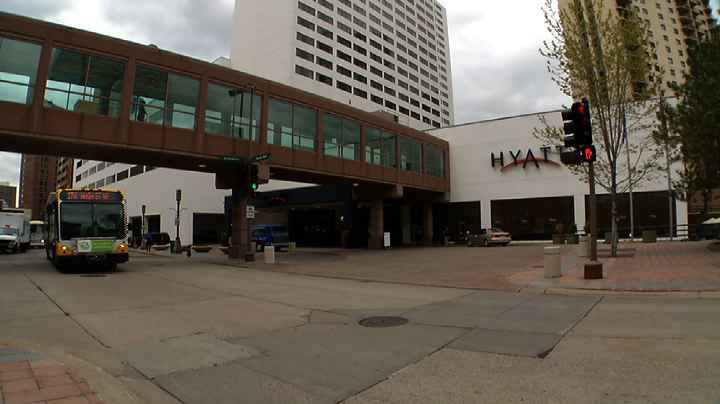City of Minneapolis considers ordinance to help hospitality workers get their jobs back
[anvplayer video=”5008175″ station=”998122″]
The hospitality industry in Minnesota has been hit hard by the pandemic. Statewide, an estimated 116,000 jobs have been lost in bars, restaurants, hotels, event centers and similar businesses, according to Hospitality Minnesota.
An ordinance being considered by the Minneapolis City Council aims at helping industry employees get their jobs back.
“I’ve never gone this long not working,” said Tamra Huston. “I’m more than ready to go back to work, it’s been a long year.”
Huston has worked at the Twin Cities 400 Tavern for the last five years, it’s part of Delta Hotels’ Minneapolis Northeast location.
“I really thought that I would retire from there,” said Huston, who is almost 60 years old. “It’s quite hard. I really, really loved my job there, they’re great people to work for.”

[KSTP]
The pandemic has also created a competitive job market for those forced to look elsewhere. According to Huston, one of her former coworkers switched from bartending to retail.
“I also applied for, I would say, probably 20 or 30 jobs and I went on like three or four interviews,” she said. “I’ve never not gotten a job I’ve interviewed for so it was a bit shocking for me to realize I wasn’t just going to be able to go out there. There are so many other people applying for every job that you are applying for.”
Minneapolis City Council Member Steve Fletcher has proposed a Right to Recall ordinance. It would give hotel and events center employees priority when their old jobs open up.
“There’s a lot of anxiety from workers … [I’ve been] hearing from people who were saying ‘I’ve been waiting for so long, I can hold on but I really am getting nervous about is my phone going to ring? I want to make sure I’m going to get that call’,” he said.
According to Fletcher, there are as many as 12,000 to 14,000 city residents who would be impacted by the ordinance.
It would require employers to reach out to laid-off employees by mail, email and text message with "all job positions which become available […] for which the Laid-off Employee is qualified.”
If more than one employee is entitled to a position, the employer would be required to offer it to the person with the greatest length of service.
In addition, if the employer decides the laid-off employee doesn’t have the qualifications and hires someone else, they have to provide a written explanation.
“We don’t know exactly what the reopening timeline is going to be but we know it’s coming so we want to make sure we’re ready for it and make sure everyone knows they’re going to get to participate in it,” said Fletcher.
Hospitality Minnesota disagrees with the approach.
In a statement, Hospitality Minnesota CEO Liz Rammer said, “Hotels and their employees have been devastated by the pandemic and the state shutdowns. Hotels want to bring back their employee teams as fast as possible, but this bill does nothing to actually help that, and instead creates unnecessary burdens that will cost money to implement. If policymakers truly want to help, we need to all work together to safely re-open hotel and event spaces so they can generate the revenue necessary to bring back their teams.”
Minnesota DFL lawmakers have introduced similar legislation in both the Minnesota House and Senate, although the bills also cover those who work at, or for, airports.
During a hearing last month on the House version, Republican Rep. Matt Grossell criticized the legislation.
“Why do we need legislation to put people back to work when all we have to do is open things back up?" said Rep. Grossell. "The COVID-Governor shutdown has hamstrung all of these businesses.”
Unite Here Local 17, which represents hospitality workers including Huston, told us 90 percent of its membership has been laid off at one point during the pandemic.
“I know that the Minneapolis ordinance, and the State ordinance are going to help thousands of people have peace of mind knowing that they’re going to get their jobs when all of this is done,” said Sheigh Freeberg, the secretary-treasurer for the union. “I think this is coming at the absolute right time."
He told us he is aware of workers who have been passed over for their old jobs.
“Absolutely that has happened,” said Freeberg. “In union shops are the ones I’m most aware of. Luckily they have rights under union contracts but those rights, typically recall rights, only extend a year and no one could’ve expected we’d be in this pandemic […] We’ve never had something like this before and we need to make sure we take an extra step to protect workers during this really unpredictable time.”
Huston told us it’s been a nerve-wracking time.
“When you know that and the year’s coming up, it gets scary for everybody,” she said. “I really want to go back to what I know and what I love.”
A public hearing for the city ordinance is scheduled for March 4.